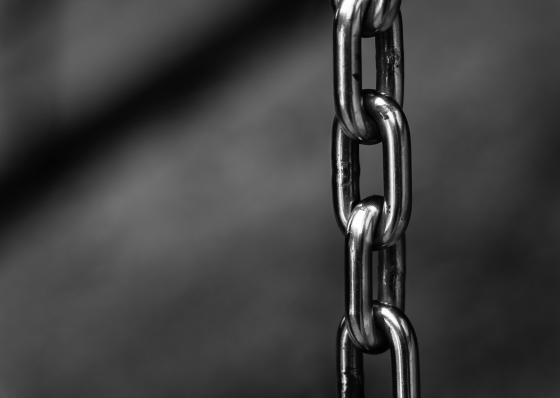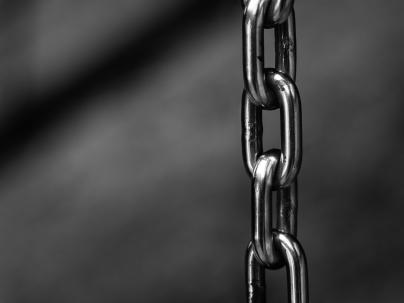Everything To Know About The Anticounterfeiting Consumer Protection Act

Questions?
Talk to a Digital Product Passport expert about your challenges - it's completely free.

The Anticounterfeiting Consumer Protection Act (ACPA) is a federal law created to eradicate the production and sale of counterfeit products or goods such as bags and music. It is illegal to sell counterfeit products and there are laws set in place so that such goods can be seized by the appropriate authorities.
There are also other severe civil penalties that can be incurred by engaging in counterfeiting. The ACPA is one of such laws set in place to help protect you and your brand from counterfeiting. The act makes sure that original creators of works are properly compensated for their results.
This federal law aims to prevent the counterfeiting of trademarks and goods with copyrights like movies , music, and computer programs. If your company or brand discovers that someone is creating counterfeits of your products, you can report to the authorities who will impose strict penalties such as payment of damages.
If a law enforcement member also seizes a shipment of counterfeit goods, the Anticounterfeiting Consumer Protection Act can also step in and take necessary action. From these approaches, we can see that the ACPA wishes to protect consumers from being deceived.
What Will The ACPA Do?
The Anticounterfeiting Consumer Protection Act under the Racketeer Influenced and Corrupt Organizations Act will enforce penalties for trafficking in counterfeit phonorecord labels, computer programs or packaging, and copies of motion pictures and audiovisuals.
In addition to that, the act imposes penalties for criminal copyright infringement, trafficking in goods or services, unauthorized trafficking of sound recordings and music videos, and interstate trafficking of stolen goods.
The act also amends the Federal criminal code to include computer programs, penalties for counterfeit labels of phonorecords and audiovisuals, and refining existing prohibitions. All actions taken by the Department of Justice on counterfeiting offenses must be included in a report to the congress on district basis.
The ACPA also revisits the Lanham Act to begin the seizure of any aircraft or vessel that is involved with any counterfeiting act. The damages to be received after a case of counterfeiting will be statutory damages instead of actual damages.
Furthermore, it amends the tariff act of 1930 to destroy the merchandise, or remove the trademark on the goods once it is discovered to be a counterfeit product. The product can also be disposed of appropriately if it is not hazardous or unsafe for the people and the environment.
Aiding and abetting others to import or sell counterfeit merchandise will also lead to severe penalties. There will be fines imposed for first and subsequent offenders. The limit of the fine will be dependent on the value of the goods if they were not counterfeits.
How Brand Owners Can Protect Their Businesses From Counterfeits
There are many ways for brand owners to protect their businesses from counterfeits. However, the most commonly applicable methods are the different levels of anti-counterfeiting technology.
The levels are as follows:
Overt Security
Overt security requires brand owners to be one step ahead of counterfeiters. In this method, you have to think of the various means the counterfeiters have up their sleeves. An example of an overt security feature are the advanced mathematical algorithms printed on product packaging.
Digital Product Passport basics:
Get a complete understanding of a DPP in just 10 minutes — with everything you need to know gathered in one place.
Covert Security
Covert security using ordinary devices requires brand owners to include NFC chips and tags like QR codes that help consumers authenticate their products by scanning. This technology is particularly useful as you only need your smartphone to scan.
If ordinary covert security technology isn’t enough for you, perhaps due to being a highly popular brand, you can employ the use of sophisticated devices to protect your products. Tools like this include taggant detectors and magnifiers.
Brand Protection Software
Among the methods to protect your brand or company from counterfeiting, this method is quite effective. Brand protection software helps to keep your products or services safe from counterfeiting. It goes beyond covert security, as it applies chips and blockchain-based software to authenticate products. That way you can easily identify counterfeits.
Final words
Counterfeiting is a major problem that has troubled the world for quite some time. Hence the need to tackle it. The Anticounterfeiting Consumer Protection Act was created precisely to solve the problem of counterfeiting, and enforce penalties for violators.
The ACPA inculcates various methods to prevent the counterfeiting of trademarks and copyrights. The act also dishes out penalties such as fines for offenders and their abetters. With the ACPA in motion, how can your business retain its originality? Check out our brand protection solutions or software to learn more.

